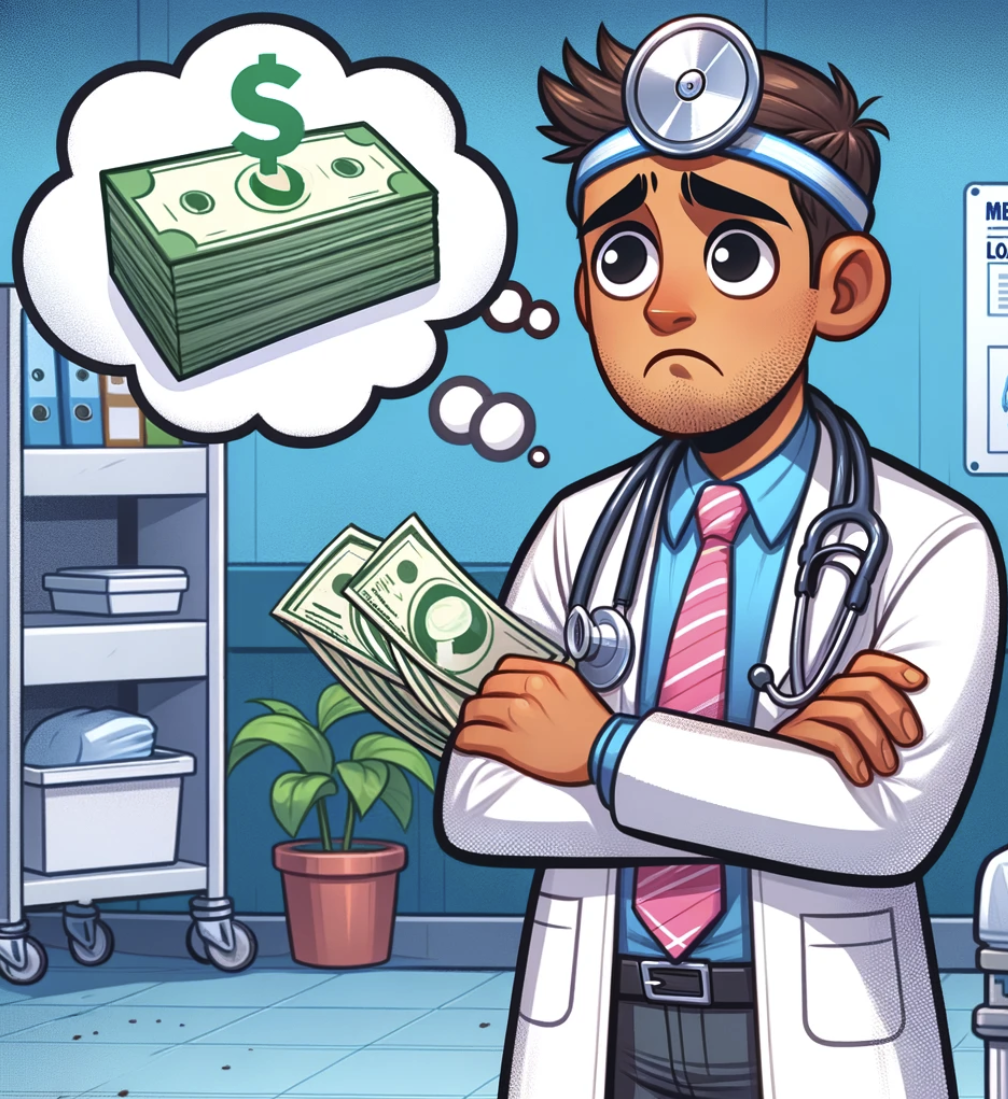Considering a career in medicine is a monumental decision, often viewed through a lens of prestige and accomplishment.
However, it’s crucial to understand the substantial downsides, including financial burdens, opportunity costs, and personal sacrifices, that accompany the journey to becoming a doctor.
This article explores the key challenges that prospective medical students face.
Summary – Downside of Going to Medical School
- Common to have hundreds of thousands of dollars in debt
- 7-10 years of no salary or low salary for many
- May be a lower-value skill set or lower wealth accumulation path compared to what they can do
- Some may find it uninteresting
- You won’t be financially independent for a very long time and don’t get the benefit of wealth compounding as those who begin saving and investing earlier
- Taxes can consume 40-50%+ of the salary, so the gross income figure is misleading
- Not just the debt but the ruthless interest payments, which can be thousands of dollars per month alone
Financial Burden
One of the most significant downsides of going to medical school is the immense financial burden.
Students often accumulate hundreds of thousands of dollars in debt due to high tuition fees and cost of living.
Even the cost of applying can be $2,000 in application fees and up to $1,000 per interview between round-trip airfare, ground transportation, lodging, food, and other things.
This situation is exacerbated by the lengthy duration of medical education and residency, which spans 7-10 years, during which students earn no or low salaries.
The debt is not just a principal amount but is compounded by ruthless interest payments, which can total thousands of dollars per month, making the total repayment sum daunting.
Opportunity Cost and Career Value
While being a doctor is a highly specialized and respected profession, for some individuals, it might not be the most lucrative career path.
The skill set and knowledge gained through medical school, while valuable, might lead to lower wealth accumulation compared to other careers, especially considering the long years of education and delayed salary earning – to go along with the high debt and interest.
This opportunity cost is a significant factor to consider, as those years could have been spent climbing the career ladder or earning in other high-paying fields.
Lifestyle and Personal Satisfaction
The journey to becoming a doctor is rigorous and time-consuming, which might lead to dissatisfaction or burnout for some.
The long road to full licensure and the demanding nature of medical work means that doctors often delay significant life milestones and financial independence.
For individuals who find the medical profession less interesting than anticipated, the personal and financial sacrifices may not seem worth it.
Additionally, once earning a substantial salary, doctors face high tax rates, which can further dampen the perceived financial benefits of the profession.
Medicine traditionally has relatively low satisfaction rates.
Conclusion
The decision to attend medical school should not be taken lightly.
Prospective students must consider the heavy financial burden, the opportunity cost of a lengthy education, and the personal implications on lifestyle and satisfaction.
It’s crucial to weigh these downsides against a genuine passion for medicine and the long-term rewards it can offer.
Only with a clear understanding of both the challenges and rewards can students make an informed decision about pursuing a career in medicine.


